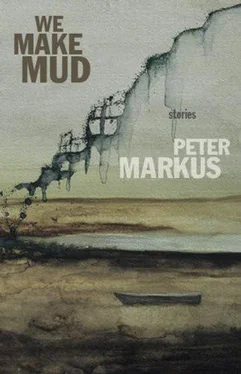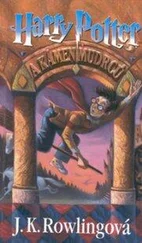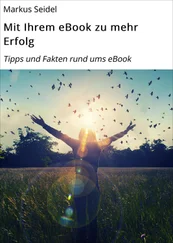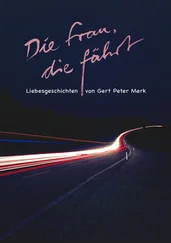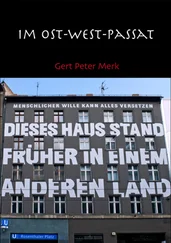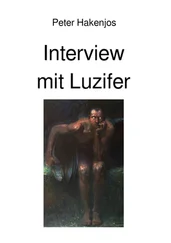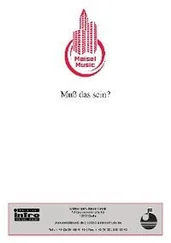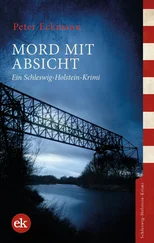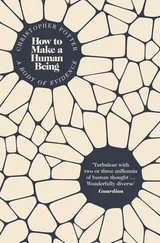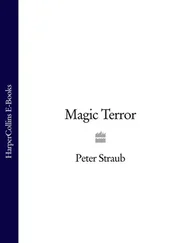Peter Markus - We Make Mud
Здесь есть возможность читать онлайн «Peter Markus - We Make Mud» весь текст электронной книги совершенно бесплатно (целиком полную версию без сокращений). В некоторых случаях можно слушать аудио, скачать через торрент в формате fb2 и присутствует краткое содержание. Год выпуска: 2011, Издательство: Dzanc Books, Жанр: Современная проза, на английском языке. Описание произведения, (предисловие) а так же отзывы посетителей доступны на портале библиотеки ЛибКат.
- Название:We Make Mud
- Автор:
- Издательство:Dzanc Books
- Жанр:
- Год:2011
- ISBN:нет данных
- Рейтинг книги:5 / 5. Голосов: 1
-
Избранное:Добавить в избранное
- Отзывы:
-
Ваша оценка:
- 100
- 1
- 2
- 3
- 4
- 5
We Make Mud: краткое содержание, описание и аннотация
Предлагаем к чтению аннотацию, описание, краткое содержание или предисловие (зависит от того, что написал сам автор книги «We Make Mud»). Если вы не нашли необходимую информацию о книге — напишите в комментариях, мы постараемся отыскать её.
We Make Mud — читать онлайн бесплатно полную книгу (весь текст) целиком
Ниже представлен текст книги, разбитый по страницам. Система сохранения места последней прочитанной страницы, позволяет с удобством читать онлайн бесплатно книгу «We Make Mud», без необходимости каждый раз заново искать на чём Вы остановились. Поставьте закладку, и сможете в любой момент перейти на страницу, на которой закончили чтение.
Интервал:
Закладка:
Our Father is a Fish
We were down by the river, us brothers, fishing for fish, when Boy walked up to tell us what it was that he was dying to tell us: that he’d just seen himself a ghost. This ghost, Boy said it, it wasn’t just any ghost, this ghost that Boy said that he’d just seen. This ghost, Boy told us brothers, it was the ghost of a fish. A ghost fish? Brother asked this back, because he wanted to believe it. We wanted to believe that a ghost could be of a fish. That’s right, Boy said right back at us brothers. The ghost that I just saw it, this ghost, it was a fish. Where’d you see it, this ghost? was what I wanted to be told. Did Boy see it, this ghost, was what I wondered, down by the dirty river that runs through this dirty river town? Boy saw it, this ghost fish, was what Boy told us. I saw it, Boy said it, out back in the back of your house’s backyard. Out back in the back of our house’s backyard, there was a telephone pole back there studded with the chopped-off heads of fish. Each fish, each fish’s head, us brothers, we gave each one a name. Not one was called Jimmy or John. Jimmy and John was mine and my brother’s names. We called each other Brother. Boy, I said to Boy, this boy who was not one of us brothers. Boy, I said this word out loud again. Give me your hand, I said. Take me, I told him. Let me see this thing that you say that you’ve seen. Boy nodded with his boy head at us brothers and took hold of us by our hands. Us brothers, with Boy in between us, we walked like this back up and back away from the river, we were taken back, by Boy, by our hands, out back into the back of our backyard. Brothers, Boy said to us then, and here he stopped us in our walking up and out back. This is where I saw what I say that I saw, Boy said. Boy let go of us brothers by our hands so he could point up with just one of his hands up to the top of our fish-headed telephone pole, up to where those fish’s fish heads gazed down upon us brothers with their eyes and their mouths opened up wide for singing. Up at the top of this fish-headed telephone pole, up to where with his boy hand Boy was pointing up for us brothers to take us a look, we could see a fish’s head way up at the pole’s top. And this head, up here up at the top, it was the biggest fish head that us brothers had ever fished and it was the biggest fish head we had ever chopped off and it was the biggest fish head that we had ever hammered and nailed with our rusty, bent-back nails into that pole’s creosoted wood. Us brothers looked up, but then we looked our looking up look back down and back at each other. There was this look that us brothers sometimes liked to look at each other with. It was the kind of a look that actually hurt the eyes of the brother who was doing the looking. Imagine that look. That fish there, Brother said, and here he took Boy’s hand back into his own. That fish, I said, because I knew what Brother was going to say and what Brother was going to do next. That fish head, I then said. That fish, we both whispered into the holes in the sides of this boy’s head. This fish is our father, we said. And like this, with Brother holding Boy back up against this back-of-the-yard pole, us brothers, we chopped off this boy’s head.
Mud Fish
Those muddy river fish that us brothers used to catch out of the muddy river that runs its way through this muddy river town, those fish were muddy river fish that always tasted of mud. Us brothers, we liked mud and liked the taste that was mud, we liked to eat mud and liked to eat too these muddy river fish. These fish from our muddy river, if it was up to us brothers, we’d let those fish sit overnight in buckets full of the river’s muddy water. To us brothers, to our muddy brother eyes, in our mud-eating boy mouths, fish can never be, fish can never taste, muddy enough. If it was us brothers who were the ones in our house doing the cooking up of these muddy river fish, we’d fry those fish up in mud instead of in butter, what our father always liked to call lard. But in our house it was our mother who was the one always doing the cooking. The kitchen inside our house, it belonged to her. But our mother, unlike us brothers and unlike our father too, she never liked the taste of mud, or liked the look of mud. She didn’t like it, our mother, when us brothers walked into her mother kitchen with mud caked on the bottoms of our boots. So what our mother would always do to the fish, before she would cook up the fish was, she’d soak them in cold salt water. This, she liked to tell us brothers, would get rid of the fish’s muddiness. Mud, our mother liked to say, it was in these fishes’ blood. Yes, yes, exactly, was what us brothers wanted to say to our mother. That, we wanted to say, was what made the fish taste, to us brothers, so good. Even if we’d said to our mother what we wanted to say to our mother, our mother, she wouldn’t have listened to us. Instead, our mother, she would do to the fish what she always did to our fish. She’d hold our fish under the kitchen’s cold tap water the way she used to take hold of us brothers’ muddy hands and tell us brothers to scrub, to wash the dirt of the mud off of us. Us brothers, we loved mud. No matter how much our mother made us brothers scrub the mud, the mud, it wouldn’t come washing off. It was the same, too, with the fish. No matter what our mother did to try to rid those muddy river fish of their fishy, muddy taste, she could not take the mud of the river out of those fish. Us brothers, our river, it was a muddy river. Our river, us brothers’, it was the muddiest river ever made. And those muddy river fish that us brothers used to catch out of this muddy river that runs its way through this muddy river town, those fish were muddy river fish with a muddy river running through the inside of each of these fish. In our river, in our muddy river town, there were so many muddy fishes, there was so much mud in our muddy river, that if you took all of those muddy river fish and if you held all of those fish all together, fish after fish after fish after fish — this, are you picturing this: all of these fish, with the mud of the river running through these fish, these fish, these fish, these fish: they would have made a mud-fish sea. They would have made a sea of fish turn back to a river of mud.
Our Mother is a Fish: Revisited
Our mother is a fish that drowned in the muddy river that runs its rusty nail through our muddy river town. Our river, our town, rusty with mud and smoke and steel, it is more mud than it is river, it is more dirt and mud and smoke and steel than it is town. Us brothers, one day, found our mother washed up on the river’s muddy shore, side by side, side-faced, with rusted cans and rusted parts of cast-away metal. Our fish-faced mother was laying face-to-the-side on the right side of her body, her fish body a water-soaked bag of skin and bones with not much else inside it. Our mother’s one eye, her left, that was facing up out of the up at us brothers, it was stuck-in-the-mud open and was looking up at us as if it was looking up at us. When I said so to Brother, Brother asked, Looking at us? Why? was what Brother wanted to know. What could she want from us? She wants us, I explained this to Brother, to take her back home with us. Our mother, Brother then set out to explain this to me, is looking at us with what she always looked at us with when she looked her eyes down at us. What I said to this was, What? How? What does she want? What our mother wants from us, Brother, Brother pointed this out, is what she has always wanted from us. I waited to hear whatever it was that Brother was about to say next. She wants us to leave, Brother said. She wants us to go. I’m surprised, Brother said, she’s not turning over right now in her muddy grave to see and to know that there’s nothing more for her to do. I can fix that, I told Brother. I told this to our mother too, and then I turned our mother over and onto her back. This turning over of our mother, I did this with my foot, my boot, the tip of it, the toe, it was thickly-covered with mud. Look, I said to Brother. Brother listened, then looked. We both did. We looked our fish-of-a-mother right in the other eye. Our mother’s other eye, her right one, it was an eye that was missing. The eye’s socket, it was a hollowed-out shell stuffed with mud. Us brothers, we gave each other a look. There was this look that us brothers we sometimes liked to look at each other with this look. It was the kind of look that actually hurt the eyes of the brother who was doing the looking. Imagine that look. Here’s to mud in your eye, Mother, we said. We raised our hands to salute the moon. And then we did with our fish-of-a-mother what every good fisherman will do to a fish when a fish is found washed up dead on the river’s muddy shore. We stuck our dirty boy fingers into our mother, inside our mother’s other eye socket, where there was still an eye inside it, and we plucked out our mother’s marbly-white eye. Us brothers, we could not the two of us decide which one of us would get to do, with this eye, what we both knew the both of us wanted to do. So we fought. We rolled around in the mud, down by the river, our fish-of-a-mother, our mother’s fishy eye, sometimes coming in between us. We fought and we fought and we rolled around in the mud until it was the voice of Girl we heard telling us to stop. We both of us brothers turned because the both of us brothers knew who was doing the telling. It was Girl and not just the voice of Girl telling us brothers to let her settle this between-us brothering. And then it was Girl, it was the hand of Girl, who grabbed our mother’s eye away from our fingers. It was then that Girl bit our mother’s eye in two. Here, Girl said, to us brothers, and she handed each of us brothers one half of our mother’s fish-eyed eye. It was as if Girl was giving to us brothers each one of us half of a moon. Girl said then, Gumball. Then Girl told us to chew. Us brothers, we chewed. We tossed back our mother’s bit-in-two eyeball into our boy mouths. We chewed and we chewed but we did not swallow. Our mother’s eye, our mother — she was a fish, she was a fish eye, that us brothers did not eat. When we were done doing our chewing, we stuck our mother’s chewed-up eyeball onto the bottoms of our muddy boots. Then we clicked our heels three times and walked home from the river, through the mud, into our mother’s kitchen. We walked into our mother’s kitchen. We did not take off our boots.
Читать дальшеИнтервал:
Закладка:
Похожие книги на «We Make Mud»
Представляем Вашему вниманию похожие книги на «We Make Mud» списком для выбора. Мы отобрали схожую по названию и смыслу литературу в надежде предоставить читателям больше вариантов отыскать новые, интересные, ещё непрочитанные произведения.
Обсуждение, отзывы о книге «We Make Mud» и просто собственные мнения читателей. Оставьте ваши комментарии, напишите, что Вы думаете о произведении, его смысле или главных героях. Укажите что конкретно понравилось, а что нет, и почему Вы так считаете.
